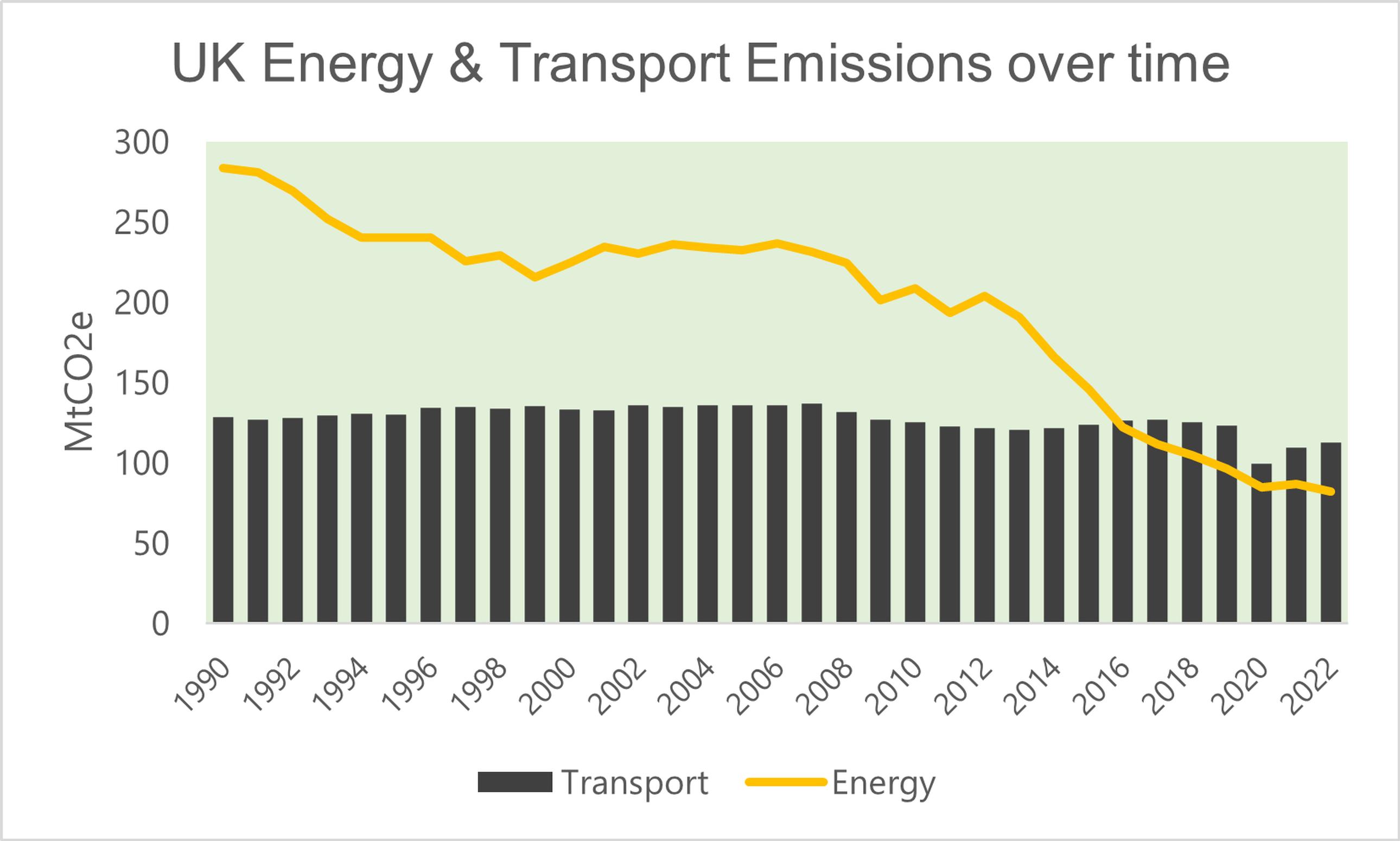

An active travel expert recently took me to task for avoiding the ‘Elephant in the Room’ after I posted a piece on what town and city managers could do to increase sustainability.
The elephant in question is transport. So, I thought it only right to acknowledge the elephant, and offer what I think are practical and affordable measures that could be implemented without delay.
The Intergovernmental Panel on Climate Change (IPCC) states that emission growth must halt by 2025 and halve by 20301 if we’re to keep within the critical 1.5°C global threshold. That’s quite a challenge for transport as we’re the UK’s largest emitting sector2 and emissions, post-Covid, are currently on the rise.
To stay on track with achieving net zero, Transport for Quality of Life3 and the Green Alliance4 say we must cut UK car mileage by 20% - 27% by 2030. Scotland has already committed to the lower end of this: reducing road traffic by 20%5.
So, how can we achieve this? Numerous solutions exist.
Clean air, low and ultra low emission zones are an obvious answer in urban areas but are costly, take time and are subject to high levels of public scrutiny and pressure.
An easier option is emissions based parking (EBP), which varies parking charges based on the emissions of the vehicle being parked. With no physical gantries or cameras, it’s also significantly cheaper.
First used in Richmond upon Thames in 2009, mainstream usage started in 2017, when Westminster City Council started trialling EBP. Overnight, the council saw parked vehicles drop by 16%, with little sign of increases elsewhere6. The council estimated that with full roll-out across Westminster, 250,000 journeys would be cut each year.
Islington Council, Camden Council and City of London Corporation quickly followed suit. In each case reducing parking by 13% - 20%, with no adverse impact on the bottom line. Other councils have joined, with Hackney7 and Lambeth8 the latest, in April and May this year.
Pricing and communication are critical to success. For behaviour change to happen, price increases must be significant and perceived as fair. A positive rationale is also key to the schemes gaining acceptance.
Hackney Council announced its decision to move to variable pricing as part of its five-year strategy, focusing on residents’ health and more sustainable streets9. The council carried out a 13-week consultation and three-week in-depth listening exercise, in which over 9,000 people provided their views.
While EBP is undoubtedly effective, over time, traffic starts to rise. So further price increases can be required. Islington Council has increased its differential multiple times. With hourly rates for diesels on a par with the daily ULEZ charge, it’s perhaps unsurprising that PM2.5 emissions in central London have dropped by 29%10.
Some argue against EBP, calling it socially divisive: penalising those within society who are least able to afford it. However, it’s these lower income residents, who without EBP, are subject to harmful air.
Public Health England states that 28,000 - 36,000 deaths a year are caused by long term exposure to poor air quality11, so why should these people be put at risk? Not least when two-thirds of Islington residents do not own a car12.
Numerous other opportunities exist to cut traffic, reduce emissions and promote change. Measures that have cut driving and encouraged modal shift include: school streets; low traffic and 15-minute neighbourhoods; park & ride; low speed and restricted zones. Simply raising parking charges has a similar effect.
Proposing such schemes can be controversial, but the benefits for all of us cannot be denied. Communicating such changes positively is therefore key to success.
Hackney Council’s consultation process provided strong evidence on which to base its change. Justification can be strengthened with holistic thinking, ring-fencing and reinvesting funds in public transport or encouraging active travel use.
The threat of climate change has been known for more than four decades and we’re now at the point of no return13. We have the tools and solutions to avoid irreversible change. The question we as an industry must answer though is, will we use them?
Anne Snelson is founder of Lead with Sustainability, a consultancy helping individuals and organisations reduce their planetary impact.
1 https://www.ipcc.ch/2022/04/04/ipcc-ar6-wgiii-pressrelease/
4 https://green-alliance.org.uk/publication/moving-on-greener-travel-for-the-uk/
7 https://ringgo.co.uk/hackney-council-uses-ringgo-parking-to-influence-emissions/
8 https://www.lambeth.gov.uk/parking/emission-based-parking-charges
10 https://www.bbc.co.uk/news/uk-england-london-62224609
11 https://www.gov.uk/government/news/public-health-england-publishes-air-pollution-evidence-review
12 https://www.ons.gov.uk/datasets/TS045/editions/2021/versions/4

TransportXtra is part of Landor LINKS
© 2026 TransportXtra | Landor LINKS Ltd | All Rights Reserved
Subscriptions, Magazines & Online Access Enquires
[Frequently Asked Questions]
Email: subs.ltt@landor.co.uk | Tel: +44 (0) 20 7091 7959
Shop & Accounts Enquires
Email: accounts@landor.co.uk | Tel: +44 (0) 20 7091 7855
Advertising Sales & Recruitment Enquires
Email: daniel@landor.co.uk | Tel: +44 (0) 20 7091 7861
Events & Conference Enquires
Email: conferences@landor.co.uk | Tel: +44 (0) 20 7091 7865
Press Releases & Editorial Enquires
Email: info@transportxtra.com | Tel: +44 (0) 20 7091 7875
Privacy Policy | Terms and Conditions | Advertise
Web design london by Brainiac Media 2020